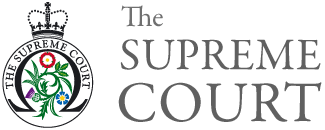Public Prosecutors Office of the Athens Court of Appeal (Appellant) v O’Connor (Respondent) (Northern Ireland) [2022] UKSC 4 On appeal from: [2017] NIQB 77
Date:2 February 2022
Justices
Lord Reed (President), Lord Hamblen, Lord Leggatt, Lord Burrows, Lord Stephens
Background to the Appeal
On 11 December 2015, HHJ Devlin ordered the Respondent’s extradition to Greece for the purposes of conducting a criminal prosecution against him. On that day, the Respondent’s solicitor stated orally in court that an appeal would be lodged against the extradition order, and on 16 December 2015, the notice of application for leave to appeal was filed with the Court. However, due to an oversight, the solicitor failed to serve the notice on the Crown Solicitor’s Office (on behalf of Greece) until about three weeks later.
Section 26(5) of the Extradition Act 2003 provides that where a person gives notice of application for leave to appeal against an extradition order after the end of the permitted period (which is seven days from the date of the relevant order), the High Court must not for that reason refuse to entertain the application if the person did "everything reasonably possible to ensure that the notice was given as soon as it could be given."
The Divisional Court in England and Wales in Szegfu v Court of Pecs, Hungary [2015] EWHC 1764 (Admin) had indicated that the correct interpretation of section 26(5) permitted no distinction between the conduct of the person and the conduct of their legal representative, so that the legal representative’s conduct was to be attributed to the person with the consequence that if the legal representative had not done everything reasonably possible to ensure that the notice was given as soon as it could be given, the High Court should not entertain the application for leave to appeal. In this case, the Divisional Court in Northern Ireland disagreed with the interpretation in Szegfu and found that it was not necessary to hold a person responsible for any failings on the part of his legal representatives. The Divisional Court in Northern Ireland decided to entertain Mr O’Connor’s application for leave to appeal, notwithstanding that it was made out of time. The Appellant now appeals that decision.
The question for the Supreme Court to decide is whether section 26(5) should be interpreted to allow or exclude a distinction between the actions of a person and their legal representative.
Judgment
The Supreme Court dismisses the appeal. Lord Stephens gives the judgment, with which all members of the Court agree.
Reasons for the Judgment
Section 26(1) of the Extradition Act 2003 identifies a "person" as being the person who is subject to an extradition order. In section 26(5), the word "person" appears twice. Lord Stephens finds that on both occurrences, "person" means the person subject to an extradition order, as set out in section 26(1). In the second occurrence of the word, the requirement of doing everything reasonably possible is imposed by the language of the provision only on "the person" and there is no evident reason to understand it as also being imposed on the individual’s agent or legal representative. [48]
This interpretation is supported by considering the vice sought to be addressed by Parliament when inserting section 26(5) into the Extradition Act 2003. The vice was the potential for substantial injustice caused by the application of short and rigid time limits for those seeking to appeal against extradition orders, whether or not such persons had legal representation. [49]
The surrogacy principle involves the imputation of the fault of a client’s legal representative to that client. However, the surrogacy principle is not universal. Lord Stephens finds that the surrogacy principle does not require an interpretation of section 26(5) consistent with the Divisional Court’s view in Szegfu. [50]
Lord Stephens agrees with the Divisional Court in this case, in finding that the procedural unfairness of attributing the fault of the legal representative to the client may not be remedied in practice, because even if it is open to the client to sue his legal representative in negligence, that right will not be of little assistance in circumstances where the client has been extradited to a place where he is at risk of inhuman and degrading treatment. [51]
Accordingly, Lord Stephens departs from the interpretation of section 26(5) in Szegfu [52], and dismisses the Appellant’s appeal. [54-55]
References in square brackets are to paragraphs in the judgment
Note
This summary is provided to assist in understanding the Court’s decision. It does not form part of the reasons for the decision. The full judgment of the Court is the only authoritative document. Judgments are public documents and are available online. Decided cases
